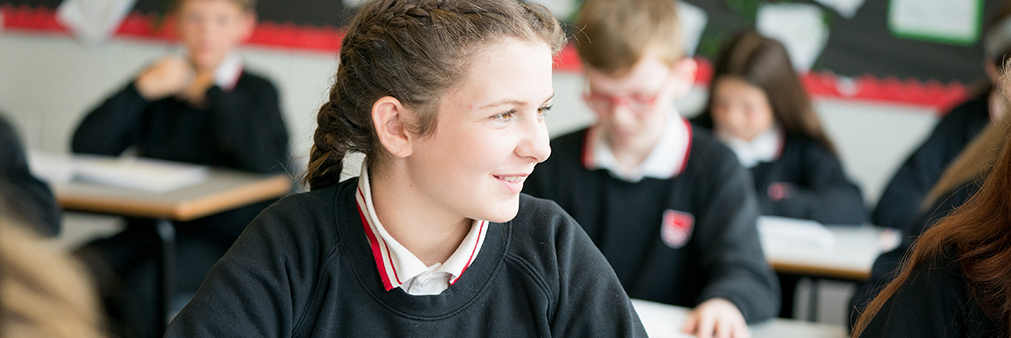
Philosophy and Ethics
Curriculum Vision
"There are hundreds of paths up the mountain, all leading to the same place, so does it matter which path you take?
The only person wasting time is the person telling everyone they are wrong"
Hindu Proverb
Students study a balance of philosophy, religion and ethics. Our schemes of learning are planned to ensure breadth and balance and to help students see the big picture of religion, and the influence of philosophy and ethics on culture and society. We aim to break down stereotypes and to focus on the diverse ways that religion is expressed globally
Knowledge and Skills
We want all of our students to have empathy with the challenges facing religious people in the modern world and to understand and evaluate ethical principles, having a strong moral compass that enables them to make good choices and ethical decisions. We aim to foster an understanding of topical issues and current affairs so that students can see the relevance of this subject in the world they live in. For example, we discuss issues of feminism, human rights, war and the problem of evil and suffering
Above all, we want students to become critical thinkers who can evaluate and come to reasoned and justified opinions on religious and moral statements.
We start by introducing students to philosophical ideas and existential questions to help them consider their own ideas about faith, creation and the existence of God. We begin to appreciate the significance of the Bible and religion in influencing worldviews and culture, and we explore the core values of the Sikhi faith and the influence of women in the major world religions. In year 8, we consider the origins and beliefs of Buddhism and compare it’s ethos with our experience of modern society. We also learn about why Jesus can be seen as a rebel and evaluate his teachings in a modern world and why having Christian values can be hard to follow. We also explore the significance of sacred spaces. By the end of Year 9, the aim is to explore a range of ethical and philosophical concepts which shape and develop decision making. For example, medical ethics, human rights, war and conflict and the problem of evil and suffering. These topics further embed the skills of critical thinking and being open to explore differences of opinion, as well as develop a strong moral compass. In all year groups, the six major world faiths are studied: Christianity, Islam, Judaism, Buddhism, and the Sikhi and Hindu faiths. This is achieved by learning about individual religions as a whole, or within a thematic approach. Students also learn from religion and worldviews, considering how they have an impact our daily lives.
Context
Lessons are designed to allow students to participate in debate and discussion and to give opportunities to express opinions and ideas about a range of religious and moral issues. The department follows the Derbyshire locally agreed syllabus, which is tailored to the needs of our specific student demographic by ensuring the inclusion of topics that encourage students’ awareness of issues that develop their cultural capital as citizens beyond the hills of the High Peak. The lessons are planned to be inclusive of their own and other’s worldviews, developing their sense of morality, empathy and critical thinking.
You can find our year 7 to 9 curriculum here.
You can find our year 10 to 11 curriculum here.
| Qualification GCSEs | GCSE Religious Studies |
|---|---|
| Board | Eduqas |
| Syllabus number | Route A 601/8879/0 |
| Website link | |
| Assessment details: | 100% terminal exam sat at the end of Year 11 |
| Recommended revision guides | My Revision Notes WJEC Eduqas GCSE (9-1) Religious Studies Route A |
| Recommended websites | Religious Studies - Educational Resources - WJEC |

